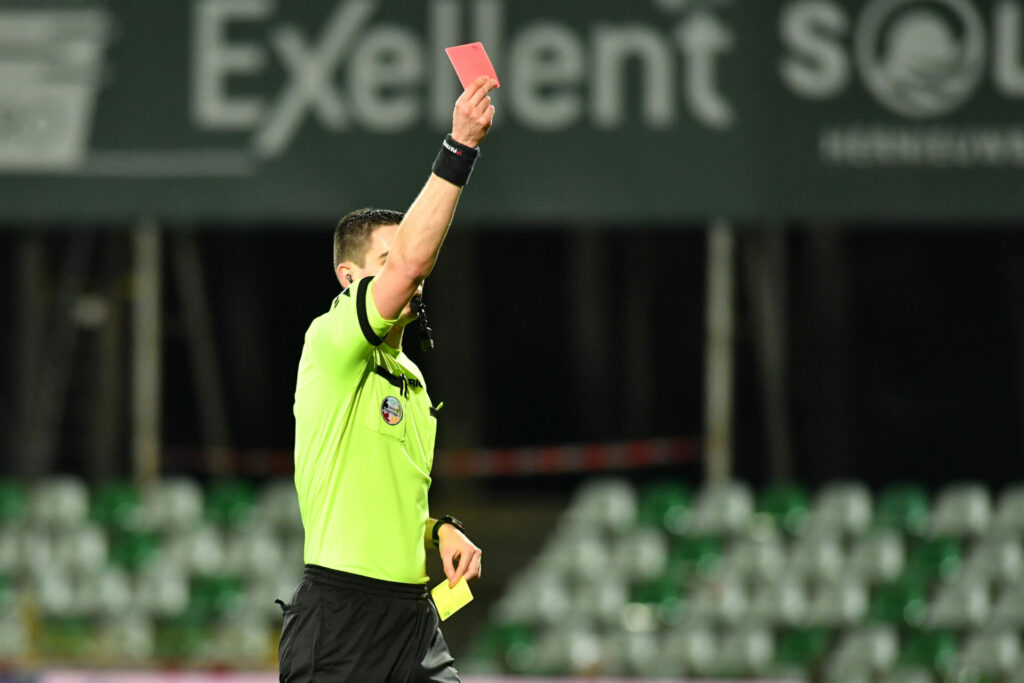Belgium’s tax authorities are investigating who pays the fines of footballers when they receive a red card, and whether any tax is paid on these fines, Het Nieuwsblad reports.
If the clubs are found to have paid the fines on behalf of the players, tax has to be paid on this, according to the authorities. The investigation is looking into over €500,000 fines.
The audit of 21 football clubs, covering the tax years 2019 and 2020, pays particular attention to the fines imposed on the clubs, and to the fines that the players received.
Usually, the players are responsible for paying the fines they receive after a red card. "If a player receives a direct red card during the match, he may be called to the disciplinary committee," Pierre Cornu of the Football Association, told Het Nieuwsblad. “That committee can impose a one-day suspension on the player.”
This also includes fines, the highest of which can be €1,000 euros per match suspended. Often those fines are paid by the club itself, according to a survey taken among the clubs, unless it is a blatant, deliberate violation by the player.
"But if the club pays that fine, it is actually a type of advantage," a spokesperson for FPS Finance told Het Nieuwsblad. "It’s the same as an employer granting an employee an extra pay benefit, like providing a company car or a laptop. And taxes must be paid on such extra wages.”
Related News
- European Court of Justice disagrees with UEFA rules on home-grown players
- Belgian football clubs to host funerals for departing fans
A total of €513,859 in fines will be reviewed. "The tax that has to be paid on this is calculated progressively," the spokesperson added. "That can range from 20% to 50%, depending on the employee's income."
Not all football clubs are happy with the tax authorities' investigation. "This is not the same as a traffic fine," Luc Adriaensens, financial director at KAA Gent, told Het Nieuwsblad. "Traffic fines are paid by the players themselves. And it is our policy that if a player has behaved unjustly, he pays the fine himself."
But in other cases, Adriaensens admits that the club paid. "This is where a sanction that the player has incurred in the exercise of his profession,” he said. “That sanction was not imposed by a court, but by a sports body. Our position is that this is not an advantage. But players who are fined in the future will now have to pay it themselves, given the attitude of the tax authorities."

